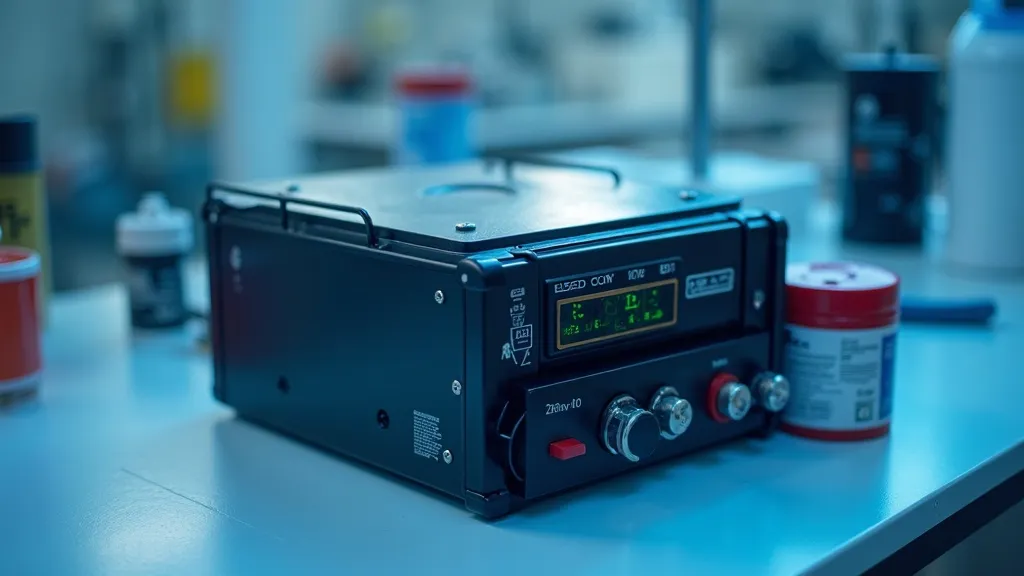Understanding Token Morpho Dynamics
Token Morpho refers to a concept within the blockchain ecosystem associated with digital currency tokens. These tokens are cryptographic assets that operate on networks based on blockchain technology, differing in utility from tokens used in traditional finance. They can represent assets or have specific characteristics that interact within various digital environments, making them a versatile tool in today's digital economy.

The Evolution of Token Morpho in Blockchain
Token Morpho is a term that has increasingly gained traction in the realm of blockchain technology. As the crypto market continues to evolve, the significance of digital tokens like Token Morpho has begun to reshape the very foundation of financial transactions and asset representation. This process represents a paradigm shift not only for individual users but also for whole institutions in understanding and navigating the digital economy. These digital tokens are not merely currencies; their multifaceted applications span transactional purposes to enabling decentralized applications (dApps) and digital governance systems, making them an essential part of the future economy.
The prevalence of Token Morpho and similar tokens signals that a new era of digital currencies is upon us. Users are no longer limited to traditional forms of currency; instead, they can explore various applications of blockchain technology, enhancing both transactional efficiency and security. Token Morpho embodies this evolution by encapsulating various functionalities—offering a glimpse into how finance, governance, and identity may transform when embraced fully.
Token Morpho: A Closer Look
The journey of implementing and maximizing the utility of digital tokens like Token Morpho can be quite intricate. Digital tokens are integral components of blockchain platforms, each serving unique purposes in supporting the ecosystem's architecture. Token Morpho stands out amongst these tokens due to its versatile usability within various blockchain structures. These functionalities range from representing funds in digital forms to enabling the automation and execution of contracts with specific characteristics coded within its architecture.
The underlying technology ensures not only the effective transaction of value but also adds layers of functionality. For instance, Token Morpho can employ smart contracts—self-executing agreements with code that automates processes, reducing the need for intermediaries. The proliferation of Token Morpho signals a shift towards more secure and efficient digital economies by allowing users to engage in transactions that are quicker, cheaper, and more transparent than traditional financial systems.
Moreover, this versatility doesn't merely stop at financial implications. The growing ecosystem of Token Morpho encourages innovations in various sectors, including logistics, healthcare, and even social governance, demonstrating its broad applicability. As industries recognize the potential to enhance operations and reduce overheads through digital tokenization, the adoption rate continues to surge, impacting traditional systems profoundly. Discussions around blockchain interoperability are feeding into further developments regarding Token Morpho’s capabilities, showcasing its potential as a bridging technology across different platforms.
Implementation and Utility of Token Morpho
The utility of Token Morpho extends far beyond simple value transactions. It offers system capabilities that have the potential to revolutionize various domains, including voting mechanisms, identification systems, and granting access tokens within multiple digital platforms. This adaptability is what primarily sets digital tokens apart from their fiat currency counterparts. By embedding functions directly into the token's code, a plethora of innovative solutions becomes viable, thereby increasing efficiency and fidelity.
The role of Token Morpho in voting mechanisms is particularly noteworthy. By implementing this token into the voting systems, it becomes possible to create highly secure and transparent voting processes. Each vote can be recorded as a transaction on the blockchain, ensuring that it remains tamper-proof and verifiable. This approach can enhance democratic processes, providing a level of transparency and accountability that traditional voting methods often lack. Similarly, Token Morpho can streamline identity verification processes through decentralized identification systems, reducing fraud and enhancing user privacy while complying with rigid regulatory standards.
Furthermore, in logistical applications, Token Morpho can represent goods within a supply chain. Items can be tracked through the lifecycle of production to delivery, with every transfer recorded on the blockchain—ensuring a reliable and immutable ledger of their journey. This form of tokenization allows for improved accuracy in inventory management and a reduction in discrepancies, which can drastically impact businesses’ bottom lines and customer trust.
Moreover, the energy sector is beginning to explore how Token Morpho can facilitate peer-to-peer energy trading. By tokenizing energy credits, consumers can buy and sell excess energy generated through renewable sources without intermediaries—ultimately giving power back to the users while actively promoting sustainability initiatives. This multitude of use cases illustrates that Token Morpho is not static; it can adapt and grow as needs evolve in various marketplaces.
Technical Aspects and Infrastructure
The infrastructure that supports Token Morpho relies heavily on the key principles of blockchain technology—decentralization, transparency, and security. Blockchains facilitate the navigation of these tokens across various nodes distributed globally. This network ensures that transactions involving Token Morpho are immutable and secure through cryptographic techniques, effectively minimizing the risks associated with conventional financial systems.
At its core, Token Morpho utilizes smart contract protocols that are often associated with platforms like Ethereum, allowing for the encoding of complex logic into the tokens' transaction architecture. This built-in functionality not only automates transaction processes but also adjusts them based on pre-set conditions, mitigating the need for human intervention and reducing potential errors. Smart contracts can make financial processes such as lending, insurance claims, and various agreements much more efficient, ultimately translating into cost savings.
The blockchain's decentralized nature also serves as a safeguard against single points of failure. In conventional systems, central authorities can become targets for attack, but a decentralized system like that of Token Morpho relies on widespread node participation, significantly complicating potential hacks. The underlying technology ensures that users maintain control over their assets, with private keys safeguarding access to their tokens while maintaining an attentive network that verifies each transaction against extensive networks of computers worldwide. As a result, Token Morpho positions itself as a robust mechanism to foster trust and reliability in the digital economy.
Security Concerns and Solutions
The digital nature of Token Morpho invites scrutiny about cybersecurity. With every advancement in technology, potential vulnerabilities can arise. Ensuring the robustness of these tokens involves employing rigorous security measures such as multi-signature authentication, which necessitates multiple forms of approval before transactions are executed. This is increasingly becoming a standard in managing digital wallets to safeguard against unauthorized access.
Regular updates and peer-reviewed security protocols are other essential safeguards in Token Morpho’s ecosystem. Continuous vulnerability assessments can help identify weak points in the system, enabling developers to proactively address them before they can be exploited. Moreover, analyzing blockchain behavior and conducting audits on smart contracts mitigate risks associated with coding errors or unforeseen exploits that could compromise system integrity.
Furthermore, innovative decentralized governance models offer additional resilience against unilateral control, a common point of failure in traditional systems. By allowing stakeholders to contribute to governance matters through voting on protocol upgrades or security enhancements, Token Morpho’s ecosystem can be protected against malicious influences. This collaborative approach fosters community trust and participation, aligning incentives within the ecosystem towards the goal of its success.
The complexities of securing such a multifaceted system encompass a need for ongoing education within the industry. User awareness regarding best security practices, including the significance of hardware wallets or biometric security measures, becomes paramount in maintaining the health of the Token Morpho community. As digital currencies continue to flourish, fostering a cultivation of knowledge around cybersecurity is key to ensuring mass adoption and trust in Token Morpho’s operations.
| Aspect | Description |
|---|---|
| Security | Cryptographic techniques ensure transaction security. |
| Utility | Versatile applications from investments to digital ID. |
| Platform | Facilitates decentralized and transparent transactions. |
| Scalability | Designed to support high transaction volumes. |
| Interoperability | Ability to interact with various blockchain environments. |
Regulatory Environment
The regulatory landscape surrounding digital tokens like Token Morpho is continually evolving. Governments and financial institutions worldwide are grappling with developing frameworks that provide a balance between fostering innovation and protecting consumer interests. In this rapidly changing environment, regulatory clarity is essential for the sustained growth and adoption of such technologies, prompting dialogues and collaborations across various industry stakeholders.
For instance, distinct zones of regulation have emerged in major economies like the United States, the European Union, and Asia-Pacific, each addressing the unique demands and concerns associated with digital tokenization. The establishment of regulatory bodies, often characterized by guidelines focusing on licensing and compliance standards for issuers and exchanges, reflects the urgent need for oversight in an industry plagued by fraud and volatility.
Some regulations address issues such as Anti-Money Laundering (AML) and Know Your Customer (KYC) protocols, mandating that Token Morpho adheres to practices intended to curb illicit activities. As regulators become equipped with more understanding and awareness of the blockchain ecosystem, it becomes evident that laws must evolve to encompass the dynamic nature of digital currencies while maintaining protections for ordinary users.
Conversely, excessive regulatory scrutiny can stifle innovation, deterring entrepreneurs from venturing into developing new applications. Advocates stressing the importance of creating a regulatory environment that nurtures technology advancement remain vocal; some propose a flexible framework that adapts as the technology evolves. The ongoing dialogues between regulators and industry players aim to construct a regulatory sandbox that allows trials and innovations without immediate broad compliance burdens, fostering a more robust atmosphere for the digital economy’s evolution.
The success of Token Morpho will heavily rely on reaching a consensus among regulators, developers, and end-users. The potential impact of appropriate regulation influences everything from user protection to market stability—therefore creating an essential foundation for the widespread adoption needed for the enhanced functionalities that Token Morpho embodies.
The Future of Token Morpho
The trajectory of Token Morpho mirrors the broader strides of blockchain technology into mainstream applicability. With continued development and an increasing acceptance of blockchain applications, the potential for Token Morpho remains expansive. As more industries recognize the efficiencies digital tokens offer, the integration of such systems is poised to rise, ushering in a new era of digital transformation that expands beyond mere financial transactions.
Consider the burgeoning interest in decentralized finance (DeFi), where Token Morpho can facilitate loans, insurance, and trading without intermediaries. By removing traditional financial intercessors, Token Morpho can reduce costs, accelerate transaction times, and provide greater access to individuals who may have been excluded from conventional financial services. The ripple effect may democratize finance, enabling millions to partake in previously unattainable opportunities, ultimately fostering economic engagement and innovation.
As the adoption of digital assets continues to grow, regulatory frameworks will likely improve, encouraging the creation of stablecoins tied to the value of traditional fiat currencies. Token Morpho could play a pivotal role in integrating such assets, enhancing the usability of blockchain technology as an intermediary between the old financial system and emerging digital economies.
In addition to DeFi, other potential applications may materialize across various sectors, including real estate, intellectual property, and even healthcare. For instance, Token Morpho could tokenize real estate, allowing fractional ownership in properties—distributing both risk and investment opportunities and paving the way for new funding models within the housing market.
Meanwhile, partnerships among tech companies, regulatory bodies, and other stakeholders will become increasingly critical for the secure and compliant deployment of Token Morpho. As collaborative environments arise, shared practices and knowledge will fortify the technology and its role in transitioning traditional systems into a more inclusive digital future.
FAQs
- What is Token Morpho? Token Morpho refers to a type of digital token used within blockchain ecosystems for various applications, extending beyond currency transactions.
- How do Token Morpho differ from cryptocurrencies? While both utilize blockchain technology, Token Morpho often serves more specialized functions beyond currency, such as enabling smart contracts and asset representation.
- Are Token Morpho secure? Yes, Token Morpho employs security through blockchain cryptographic techniques. Nevertheless, users must remain vigilant against potential vulnerabilities and employ high-security standards.
- What are the regulatory challenges? The main challenge is the development of comprehensive regulations that both protect users and enable innovation in blockchain technology, invoking a need for ongoing dialogue between regulators and developers.
- What is the potential for Token Morpho in other sectors? Token Morpho has remarkable potential for applications across diverse industries, such as real estate fractional ownership, decentralized finance (DeFi), digitized voting, and identity verification, showcasing its adaptability.
- How can businesses leverage Token Morpho? Companies can harness Token Morpho by incorporating it into their existing operations to streamline processes, enhance security, and foster innovation, making their services more efficient and consumer-centric.
- What is the role of smart contracts in Token Morpho? Smart contracts enable automated execution of predefined rules within Token Morpho, revolutionizing various processes by reducing the need for intermediaries and enhancing trust between parties involved.








